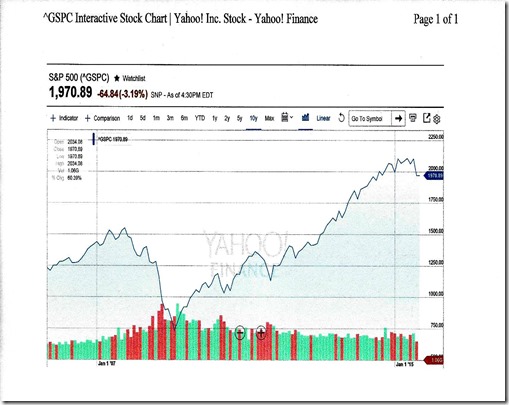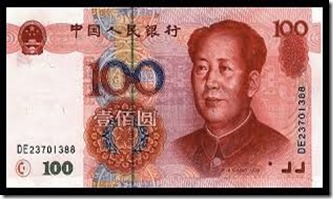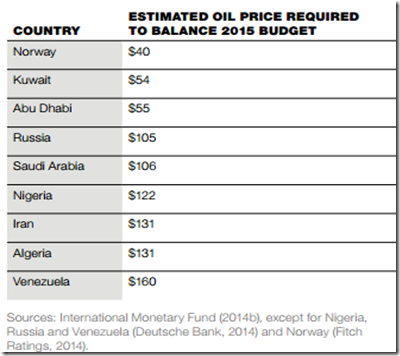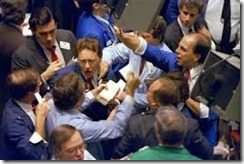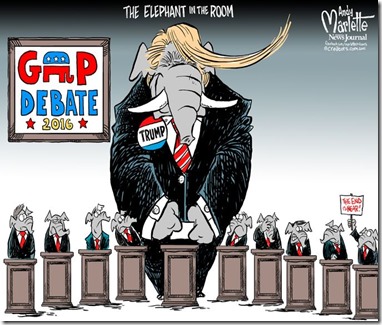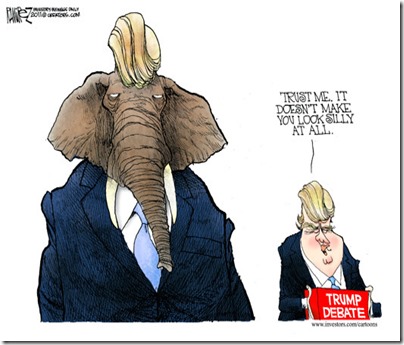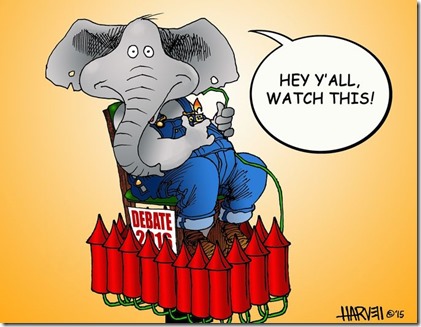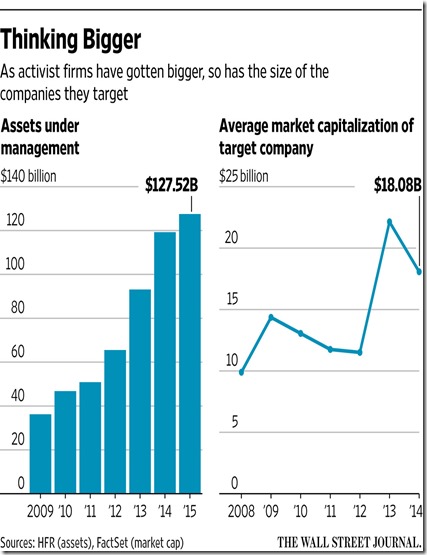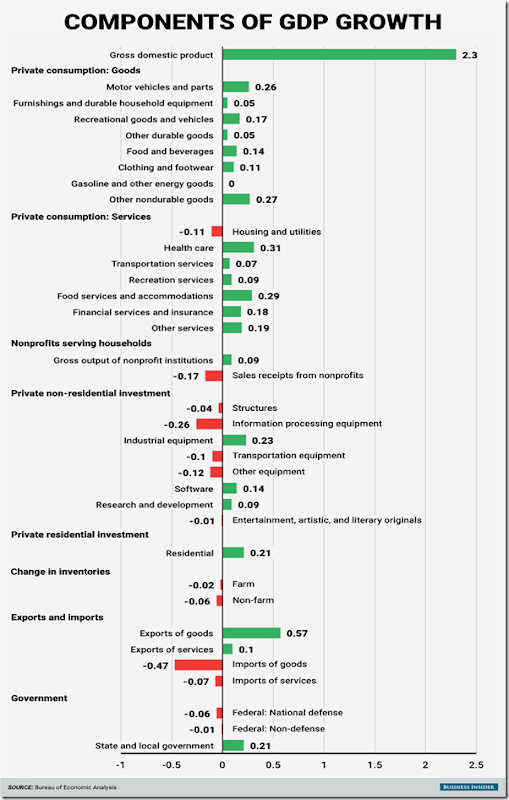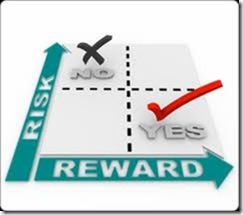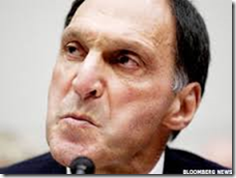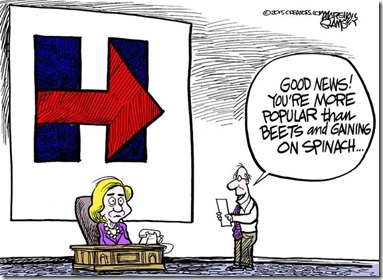 MARKET SURPRISE? IT SHOULDN’T BE. I’ve been writing about a market correction, the possibility of a correction, the fact that we haven’t had a meaningful correction, for the past year. Hello, here it is. And the press has done the average investor a big disservice by exploiting the correction (It is what it is and not a recession, depression, meltdown, calamity or global economic black hole). USA Today published some facts in order ‘not to panic’ investors from The Motley Fool writer Sean Williams on August 24, 2015:
MARKET SURPRISE? IT SHOULDN’T BE. I’ve been writing about a market correction, the possibility of a correction, the fact that we haven’t had a meaningful correction, for the past year. Hello, here it is. And the press has done the average investor a big disservice by exploiting the correction (It is what it is and not a recession, depression, meltdown, calamity or global economic black hole). USA Today published some facts in order ‘not to panic’ investors from The Motley Fool writer Sean Williams on August 24, 2015:
- Stock market corrections happen often. About once a year.
- Stock market corrections rarely last long. The average is about 14 weeks.
- No one can predict what can cause a correction.
- Corrections matter only if you are a short-term trader.
- They’re a great time to buy quality stocks.
Chief Investment Officer Harold C. Elliott, Westminster Financial Companies, pointed out that the length of the recent equity market climb had been the third longest period without a correction in the last 100 years. To calm global markets he suggested that the economies would be best served if the People’s Central Bank of China would cut interest rates in a single action rather than taking a ‘slow drip’ approach. And, if the Fed communicated that they needed to maintain rates at current levels for some reasonable period, rather than keeping investors guessing from month-to-month. Both actions would calm markets and restore stability. August 26, 2015
CNBC’s Carol Roth echoed those sentiments and wrote the Fed needed to come clean on rates. The fact that some, if not all, Fed officials were watching the stock market, was not lost on some commentators during Wednesday’s late morning dialogue. CNBC August 26, 2015
 Making Sense of Selling in a Correction. The Dow closed Monday August 24 under 16000. If you were to sell at the close of Monday you were selling at a point far less than where the DJIA was earlier in the year. The selling only makes sense if you know where you want to buy back in. That point has to be ‘lower’ than the 16,000 you sold otherwise you are selling low and buying high. That’s exactly what most amateur investors do (they sell low and buy back in at a higher price than they sold), and then complain the markets are unfair. They sell at some number and refuse to come back at or below that number but when the market recovers past the number where they sold. Have a plan on where to sell and when to buy. Make sure your buy is well below your selling point. Money doesn’t have emotion.
Making Sense of Selling in a Correction. The Dow closed Monday August 24 under 16000. If you were to sell at the close of Monday you were selling at a point far less than where the DJIA was earlier in the year. The selling only makes sense if you know where you want to buy back in. That point has to be ‘lower’ than the 16,000 you sold otherwise you are selling low and buying high. That’s exactly what most amateur investors do (they sell low and buy back in at a higher price than they sold), and then complain the markets are unfair. They sell at some number and refuse to come back at or below that number but when the market recovers past the number where they sold. Have a plan on where to sell and when to buy. Make sure your buy is well below your selling point. Money doesn’t have emotion.
Frank Stafford,economist at the University of Michigan, found that when stocks crash, those with less education and smaller balances are ‘the most likely to sell-locking in losses. Households with more wealth and more education are likely to buy during declines and thus experience gains when stocks recover. Source WSJ August 24, Real Time Economist.
 On The Phone All Day Monday Explaining:
On The Phone All Day Monday Explaining:
- Companies are hiring. For Hire signs popping up around town. Wages slowly increasing.
- Homes selling and prices increasing.
- Inflation Low.
- Gas Prices Low. Consumers Just Got a Raise.
- Corporations doing just fine, thank you.
Bob C. Doll, CFA, Senior Portfolio Manager, Nuveen Asset Management. Weekly Investment Commentary August 24, 2015.
- S&P 500 Index has more than tripled since 2009 and is only 7% off its all-time high.
- Equity yields are higher than bond yields, it’s usually a buying opportunity for stocks.
- The sharp selloff has done some technical damage to the markets, which could take some time to repair.
- Equities may be currently oversold, but we may not yet have seen the lows of this cycle.
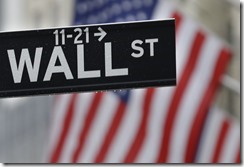 In a Low-Rate World U.S. Stocks Still Look Like The World’s Best Asset Class Because of The Combination of Moderate Valuations, Decent Dividends and Growth Potential. Barrons.com 8/22/2015
In a Low-Rate World U.S. Stocks Still Look Like The World’s Best Asset Class Because of The Combination of Moderate Valuations, Decent Dividends and Growth Potential. Barrons.com 8/22/2015
Just a reminder the above chart of the S&P 500 Index 10-years. Note dips after 2008 Crash.
Jason Zweig at WSJ August 21, 2015: Things Investors Shouldn’t Do Now:
- Don’t Fixate on The News
- Don’t Panic
- Don’t Be Complacent
- Don’t Get Hung Up On The Talk of a Correction
- Don’t think you-or anyone else- knows what will happen next
 Get Your Shopping List Ready! If you’ve been on the sideline and waiting for a reason to get back in, or have extra cash sitting earning zip at the bank, time to start researching plenty of dividend players that have been beaten up and ripe to buy. There is nothing wrong with dipping in and picking up certain shares at prices here and following up with more later.
Get Your Shopping List Ready! If you’ve been on the sideline and waiting for a reason to get back in, or have extra cash sitting earning zip at the bank, time to start researching plenty of dividend players that have been beaten up and ripe to buy. There is nothing wrong with dipping in and picking up certain shares at prices here and following up with more later.
 At my 2015 Breakfast Meeting I urged attendees to build their own investment lifeboat. This would be what they would do when markets fell, corrected or crashed. The most important aspect of a ‘lifeboat’ is to determine when to get back in. As they say in the theater, drama is easy, comedy is hard. In investment management selling is easy, buying is hard.
At my 2015 Breakfast Meeting I urged attendees to build their own investment lifeboat. This would be what they would do when markets fell, corrected or crashed. The most important aspect of a ‘lifeboat’ is to determine when to get back in. As they say in the theater, drama is easy, comedy is hard. In investment management selling is easy, buying is hard.
 Tuesday Market’s Fizzle… “No enthusiastic buyers.’ The Dow sputtered and gave up huge gains from the open to close down over 200 points. This was the biggest reversal since October 29, 2008. Shiller, and others, were cautioning over ‘after-shocks’ earlier on CNBC with such a huge and fast hit to the markets earlier. Peter Cardillow, chief market economist at Rockwell Global Capital, ‘It’s just going to take some time for confidence to rebuild in the market.’ CNBC 8/25/2015. Barrons.com offered up encouragement on buying certain large cap stocks that have been oversold and small caps in their August 26th online edition.
Tuesday Market’s Fizzle… “No enthusiastic buyers.’ The Dow sputtered and gave up huge gains from the open to close down over 200 points. This was the biggest reversal since October 29, 2008. Shiller, and others, were cautioning over ‘after-shocks’ earlier on CNBC with such a huge and fast hit to the markets earlier. Peter Cardillow, chief market economist at Rockwell Global Capital, ‘It’s just going to take some time for confidence to rebuild in the market.’ CNBC 8/25/2015. Barrons.com offered up encouragement on buying certain large cap stocks that have been oversold and small caps in their August 26th online edition.
WHAT WAS BOTHERING THE MARKETS TUESDAY? James Meyer, CIO, Tower Bridge Advisors, said it was China and collapsing commodity prices. Oil was up for the session to close at $39.31 a barrel and Brent closed at $43. China announced plans to cut its one year lending rate to 4.6%. cnbc.com 8/26/2015
The Cardinal Rule for Wealth Accumulation is: Buy on Weakness Sell on Strength. It is a unemotional process on money management. If you are unable to do that allow your fund/portfolio managers to do it for you.
 Whoop de-do! Markets UP Wednesday. Biggest ..3rd -One Day Point Increase Ever. The play-by-play started just like Tuesday but the difference was when Tuesday started to lag in the afternoon Wednesday markets continued their run until short-sellers had to cover (cnbc 8/25) late in the session. If Tuesday was the bottom, know one knows, or they’re not talking. Jim Cramer explained that bottoms in the stock market are not events but more of a process. If that’s the case than there may be more pain ahead. September has historically been the worst month of the year for the S&P 500. It could be, according to Cramer’s authority Bruce Kamich, a chartered market technician and professor at Baruch College, that the markets will retest this week’s lows again in late September or early October. China markets up Thursday morning. Source CNBC.com 8/25, 8/26 & 8/27. Signs of a Real Bottom.
Whoop de-do! Markets UP Wednesday. Biggest ..3rd -One Day Point Increase Ever. The play-by-play started just like Tuesday but the difference was when Tuesday started to lag in the afternoon Wednesday markets continued their run until short-sellers had to cover (cnbc 8/25) late in the session. If Tuesday was the bottom, know one knows, or they’re not talking. Jim Cramer explained that bottoms in the stock market are not events but more of a process. If that’s the case than there may be more pain ahead. September has historically been the worst month of the year for the S&P 500. It could be, according to Cramer’s authority Bruce Kamich, a chartered market technician and professor at Baruch College, that the markets will retest this week’s lows again in late September or early October. China markets up Thursday morning. Source CNBC.com 8/25, 8/26 & 8/27. Signs of a Real Bottom.
 Slow Growth Economy? Not so fast! U.S. Second Quarter GDP growth revised sharply higher to 3.7%! Instead of 2.3% the Commerce Department said that revised numbers show the Fed could raise rates because the U.S. economy was in good shape to weather the growing strains of the world economy. My question is how could trained, educated, experienced financial professionals be so far off in their calculations? Source Reuters 8/27/2015
Slow Growth Economy? Not so fast! U.S. Second Quarter GDP growth revised sharply higher to 3.7%! Instead of 2.3% the Commerce Department said that revised numbers show the Fed could raise rates because the U.S. economy was in good shape to weather the growing strains of the world economy. My question is how could trained, educated, experienced financial professionals be so far off in their calculations? Source Reuters 8/27/2015
Climaxing a week we’ve seen just about everything Thursday’s the Dow closed up 369 points and the Naz a whopping 115. This doesn’t mean we won’t see more volatility or scary moments. The fact there was something for both Bulls and Bears last week. We also had a nice V shaped bounce. Classic. Whether the markets hold is another story. A revision of GDP, oil prices rebounded Thursday slightly, China, Inc. tossed more money into their markets and cut rates a bit. We may see market aftershocks but for most investors this was as exciting a week as one would want- or not. 
QUESTIONS CALL PAUL @ 586 295 0430 or WRITE HIM @ pstanley@westminsterfinancial.com. SHARE THIS BLOG WITH SOMEONE WHO CARES ABOUT THEIR MONEY.
SECURITIES OFFERED THROUGH WESTMINSTER FINANCIAL SECURITIES, INC. MEMBER FINRA/SIPC.


